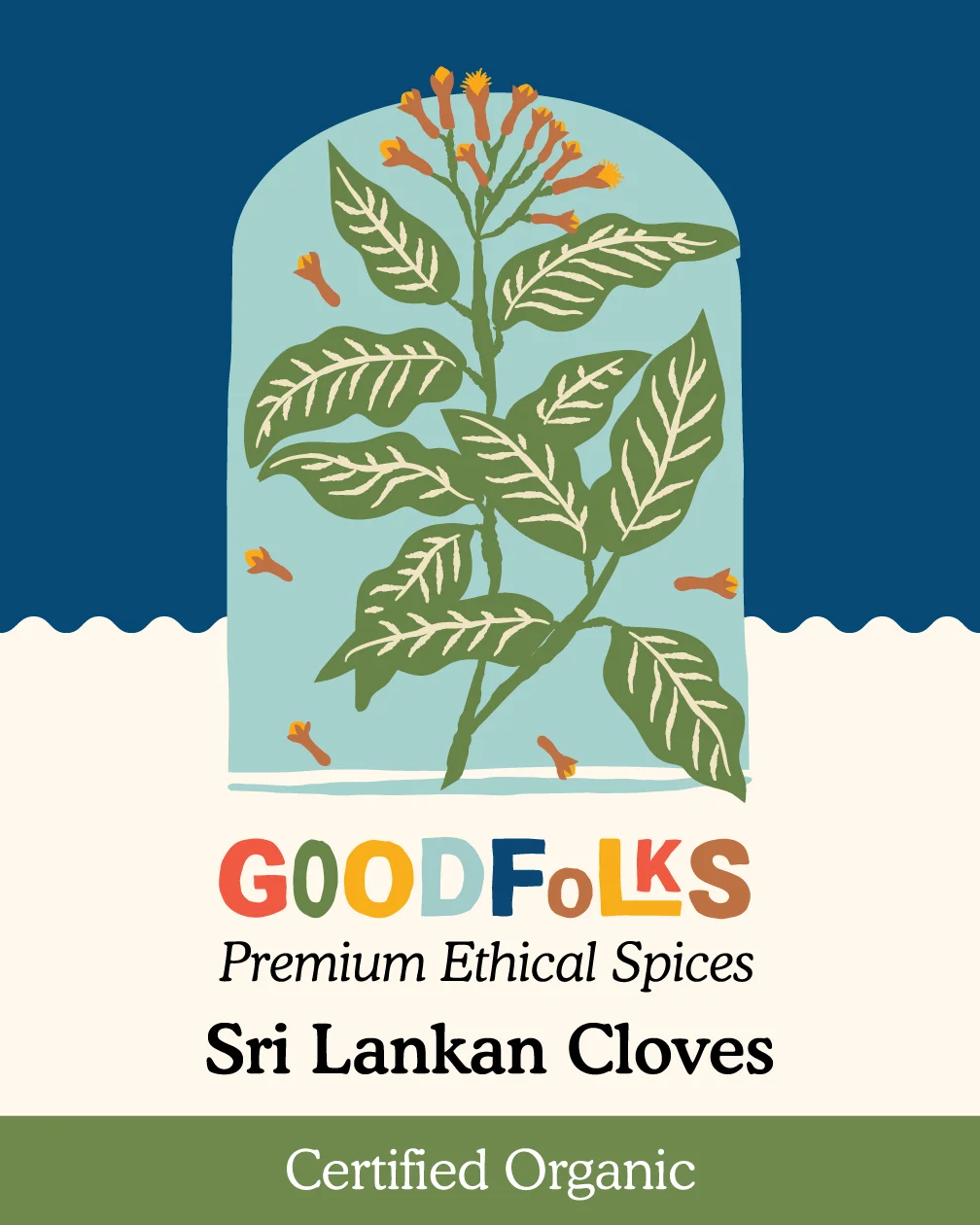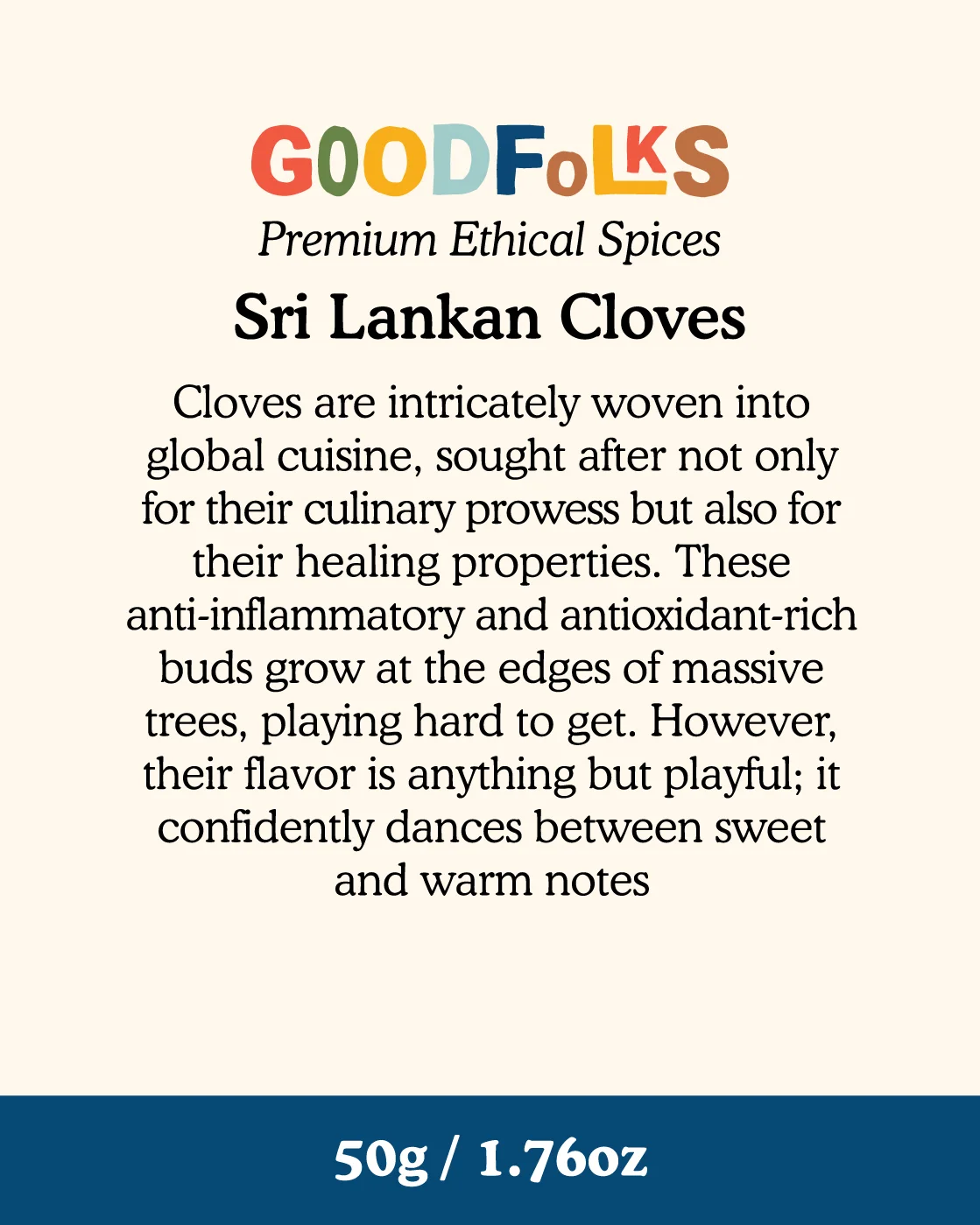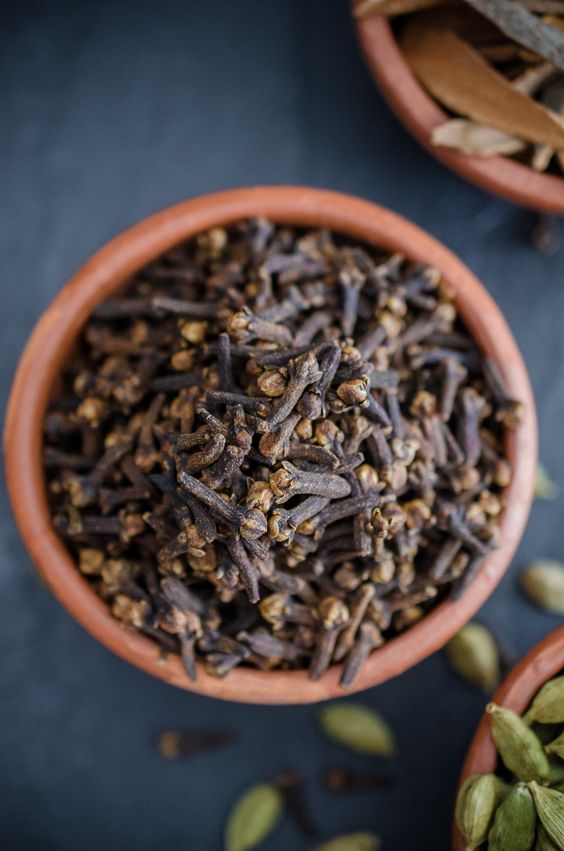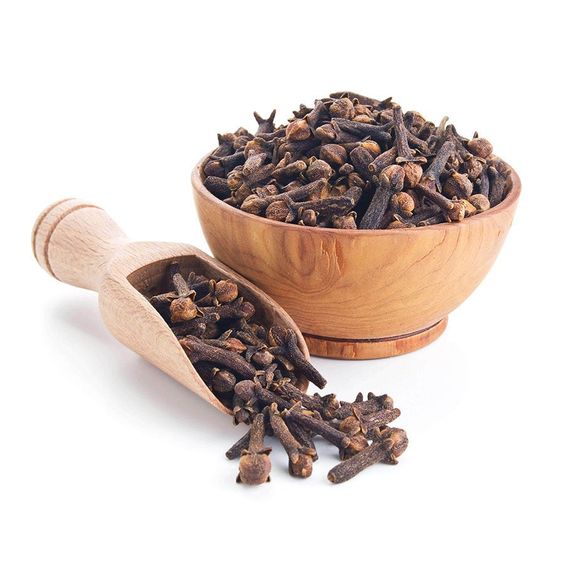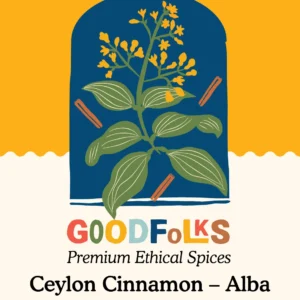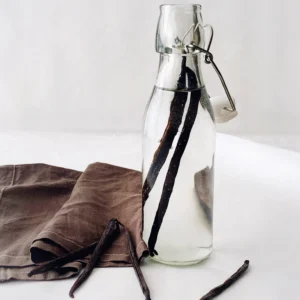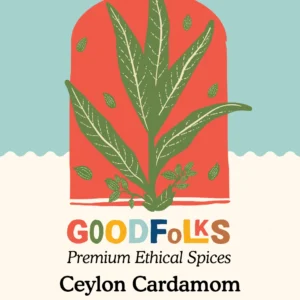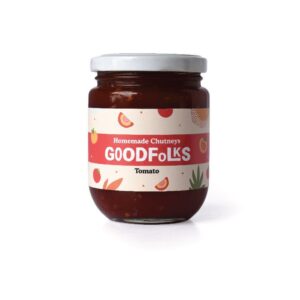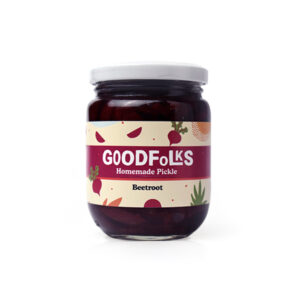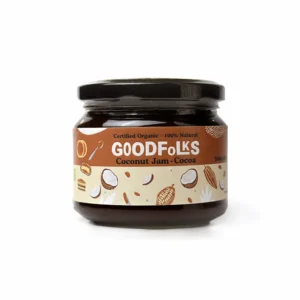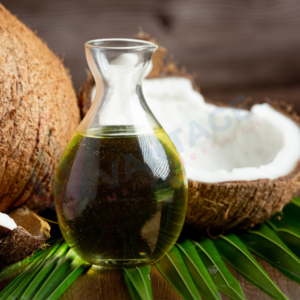Description
Organic Sri Lanka Cloves – Ceylon Cloves
Sri Lanka, known as the “Spice Island,” has been a hub for spice cultivation for centuries. Among these treasures, cloves hold a special place. Introduced to Sri Lanka by Arab traders in the 9th century, cloves have thrived in the island’s lush, tropical climate, developing a distinct flavor and aroma that sets them apart from cloves grown elsewhere.
Sri Lankan cloves are often referred to as “Ceylon Cloves,” a term coined from the island’s former name, Ceylon.
You can now source Sri Lankan Cloves from us with Organic Certification or have them sourced from Home Gardens and small scale farms through our Regenerative Agriculture programme.
Origins and why Sri Lankan Cloves are literally the best
Sri Lanka, historically known as Ceylon, has been a cradle of spice cultivation for centuries. It was Arab traders who first introduced cloves to this enchanting island in the 9th century. Since then, Sri Lanka’s fertile soil, combined with a tropical climate, has provided the perfect environment for cultivating these fragrant buds. Today, Sri Lankan cloves are celebrated worldwide for their exceptional quality and distinctive flavor.
The Ideal Climate for Organic Cloves
Sri Lanka’s diverse micro-climates, particularly in the central highlands, create an optimal setting for growing organic cloves.
Balance Rainfall – Ensures cloves receive the necessary moisture without the risk of waterlogging.
Consistent Temperatures – This stability is vital for the cloves’ growth, allowing them to flourish and develop their unique flavor profile.
Rich, Loamy Soil – The soil in Sri Lanka, particularly in the central regions, is rich in nutrients and well-draining. This combination is crucial for the healthy growth of cloves, resulting in robust and flavorful buds.
Altitude Advantage – The cooler temperatures at higher altitudes contribute to a slower growth process, allowing the buds to develop more complex and nuanced flavors.
Varieties and Grades of Sri Lankan Cloves
Hand-Picked Cloves: This method allows for careful selection of mature and high-quality cloves. They tend to be larger in size, have a more uniform appearance, and possess a higher oil content. Favored in culinary applications where size, appearance, and flavor intensity matter.
Machine-Picked Cloves: Harvested using automated equipment. Although a few companies are experimenting, almost all Cloves from Sri Lanka are hand-picked.
Grades of Sri Lankan Cloves
Grade 1 : These are the highest quality cloves available. They are carefully selected for their large size, uniform colour, and high oil content. They are plump, uniformly dark brown, and have a rich aroma and flavor. Ideal for premium culinary applications and for use in medicinal and aromatic preparations.
Grade 2: Good quality but may have slight variations in size and color. May include cloves with minor imperfections or size discrepancies, but they still have a strong aroma and flavor. Suitable for a wide range of culinary uses.
Grade 3: More noticeable variations in size, color, and quality. May include smaller or less uniformly colored buds. They may have a slightly milder aroma and flavor. Often used in commercial spice blends, processed foods, or applications where appearance is less critical.
Different suppliers may use different terminology.
How Sri Lankan Cloves are used
Culinary:
- Flavoring agent in dishes, baking, sauces, and beverages.
- Used in pickling and preserving.
Medicinal:
- Dental care for toothaches and gum pain.
- Aids digestion and may alleviate gastrointestinal issues.
- Respiratory remedies for coughs and colds.
- Anti-inflammatory properties for pain relief.
Aromatherapy:
- Clove essential oil for soothing and stress relief.
Traditional Medicine
- Used in Ayurveda and Traditional Chinese Medicine
Herbal Remedies
- Natural antiseptic for wounds.
- Analgesic properties for muscle and joint pain.
Insect Repellent:
- Acts as a natural insecticide.
Beverages:
- Adds flavor to mulled drinks like wines and ciders.
Perfumery:
- Used in the fragrance industry.
Soap Making and Cosmetics:
- Adds fragrance and potential skin benefits to soaps and cosmetics.



